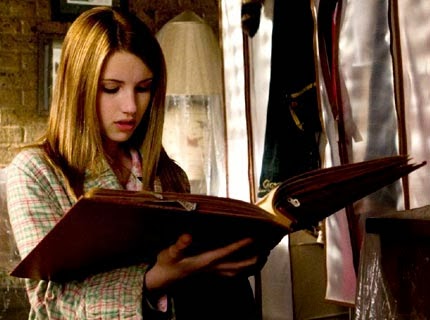Last week I was scrolling through Facebook and my eye caught sight of a nifty little info-graphic on relationships. It follows what's known as the Triangular Theory of Love and was developed by psychologist, Robert Sternberg.
According to the theory, intimacy, commitment and passion on the three elements of a relationship. Different combinations of the three elements can result in a variety of bonds between people.
The Three Elements:
Intimacy: Feelings of attachment, closeness, connectedness, and bondedness
Passion: Encompasses drives connected to bother limerence and attraction
Commitment: In the short term, the decision to remain with one another, and in long term, plans made with that person.
 |
| The Triangular Theory of Love |
Let's start with the no element relationship. This is know as Non-love. Quite simply, it's a relationship without any of the three elements. Non-love is more common than you think. All of our daily, casual interactions fall under this category.
Then there are one element relationships.

The first relationship in this category is Liking which is just intimacy alone. This is like our classic friendship. You feel attached or close to someone but don't have that element of passion or long term commitment.
Next there's Empty Love. This is when a relationship has commitment but no intimacy or passion. Some relationships fall into this while others begin here–an arranged marriage for example (but definitely not always).
In my science fiction story, Crec, I can classify the relationship a group of allies has as empty love. They make a commitment to each other to protect and support each other but there's not element of intimacy or passion.
Fourth of the seven: Infatuation, another term for a solely passion based relationship. By definition, infatuation is intense but short-lived. Usually romantic relationships start this way but not always. If intimacy or commitment are not added into the equation however, this passion will disappear.
Two element relationships are stronger than one element relationships simply because there are more elements added to the mix.
Intimacy plus commitment equals Companionate Love. This love is stronger than friendship because there is a long term commitment involved. It applies to family members and close friends in which the relationship is platonic and strong.
Fatuous Love is the combination of commitment and passion. This is usually when a commitment is made based on passion. It can be described as "a whirlwind of courtship and marriage". Think Romeo and Juliet.
Romantic Love comes from the intimate and passionate components of love. Romantic lovers are attracted both physically and emotionally to one another but without sustaining commitment.
The strongest of all bonds is the lone three element relationship, Consummate Love.
This is what's described as the perfect relationship because it's passionate, intimate, and committed long term. These couples can't imagine themselves with anyone else...ever, and can get through difficulties with ease.
However, this type of love is hard to keep up if there's no expression.
The Big Seven are pretty black and white. It's one of the first things I caught while studying it. In a way though, the black and whiteness helps me understand the difference between the types of relationships and gives me categories to put my characters into.
What do you think of the Triangular Theory of Love? If you write, where do your characters fit in? Do you know any characters from any of your favourite books that fit into any of these characters? Let me know in the comments below!









